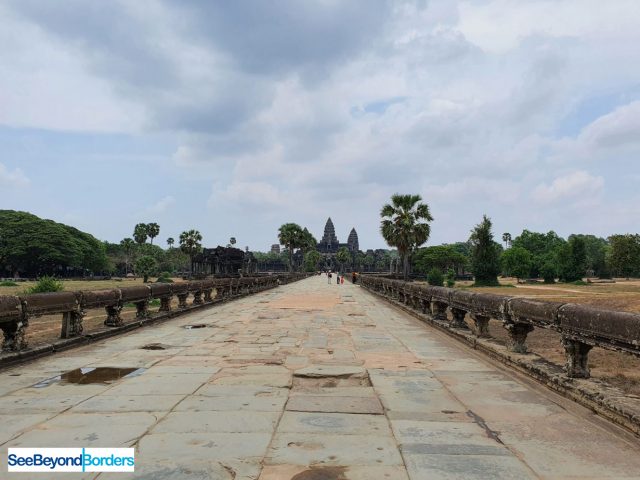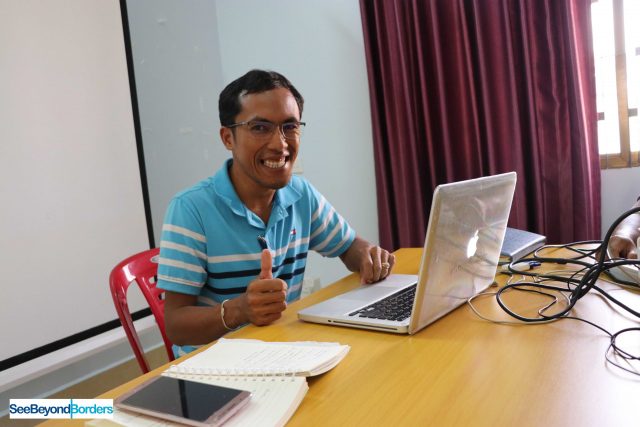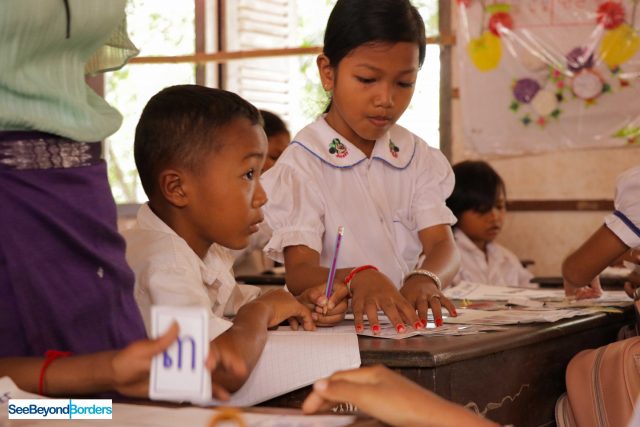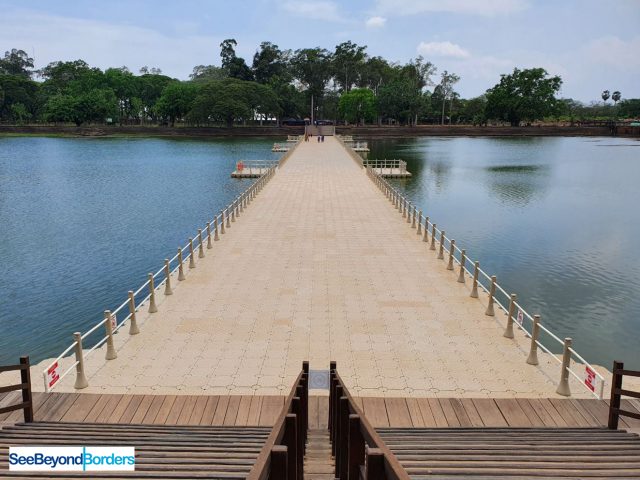SeeBeyondCOVID-19 has become the focus for us all in one way or another. Beyond the hand sanitiser purchases, the working from home, the school closures, and the toilet paper mountains that someone must be climbing as a virtual challenge in their bathrooms, how do we spend our time in isolation to get ready to resume life as we knew it? This is not to diminish the job being done by those risking their own lives in order to keep us safe as best they can, but it is an essential part of our nature to try to see beyond.
What we do know is that far from being indiscriminate, this virus is laying bare the inequalities in our systems, preying on our weaknesses and on the most vulnerable. Commentators are speculating as to whether the world will face the inadequacies and injustices when we have defeated this threat or whether the walls surrounding privilege will simply be built higher and more impenetrable. We will each play a part in deciding this of course and must prepare now to face the choices that will confront us as restrictions are gradually lifted.
In our own small corner, we have three phases of our release from confinement to plan for. To put that planning in context, we must make assumptions about what we think our future might look like, picking a version that we think is most likely. We can then examine the three phases in more detail, testing them under a defined scenario and other possible variations.
Our forecast and most likely scenario at this time is that schools will reopen in November for the start of the new school year, but our income for the next year will be down significantly. We estimate it will fall by 40% in comparison with where we will end this year (end of June). This in itself will be US$ 100,000 below budget and will have ramifications for the children and teachers we work with. We do have an adequate level of reserves which will help get us through the process of refocusing the organisation so as to prepare us for what we forecast will be at the minimum a two to three year downturn in funding for education programs in developing countries. We do not see a short term fix or a ‘v’ shaped recovery being likely for our work. More likely, the debt levels that developed countries will be saddled with plus the insecurity that people and businesses are already experiencing, will combine to cut foreign aid and curtail giving to causes that are far from donors’ own doorsteps. We do believe and hope there will be many examples that run contrary to this view and we will be heavily reliant on such support to help us through and ensure our survival.

The first of our phases involves preparing for this new future. The second, examining what we can do in the short term by way of immediate response and mitigation in the face of the crisis, and the third, starting or restarting the core projects. The third phase will begin when interaction and engagement is again possible and we can pursue those projects we have chosen as giving us the best chance of supporting Cambodian education into the future.
Preparing: This is when many of the most difficult choices are to be made and it is our current phase. Costs must be cut immediately, people let go, and projects mothballed or wrapped up. This is neither easy nor desired. Over 70% of our costs relate to our staff, many of whom develop and deliver our programs, while our other variable costs for equipment and supplies, are a small proportion of our costs of delivery for projects. Therefore, reducing headcount and reducing hours of work for staff is the only way to begin to find the 40% of savings that are essential. Rebalancing the organisation is a three cornered problem with costs and revenues representing two and projects representing the third corner. The projects we decide to keep, will dictate which staff need to be retained and their associated costs will need to fall within the revenue level we predict and hope can be secured.
Responding: Having prioritised our projects, set consequential staffing levels, and identified what needs to be done in the period of lockdown, we can see whether we can mount any immediate response to the current situation with the staff we are to retain, and who will return to the projects as soon as possible. Generally we are not the type of organisation that is equipped to provide an immediate emergency response. We focus on development and not on the immediate welfare of those we work with. However, while we might not be in a position to help with the immediate consequences of the undoubted and profound economic crisis, we may be able to help with providing some continuation of learning for children out of school where that integrates with the digitalisation of our existing learning processes now underway.
We will look to accelerate that part of the digitalisation project focused on helping children learn. Ways to distribute these resources to parents via the teachers in our literacy program will be examined, recognising that use of smartphones in certain communities may be relatively limited and internet credit may be a form of discretionary expenditure that is forgone as hardship presses.

These digital resources will be used when schools return, to enhance learning in classrooms. As ever, our focus will remain on producing quality that benefits learning for children in early grades.

Engaging: The third phase, to begin when interaction becomes possible again, has to be designed. As part of our planning and cost cutting, we have determined that we will draw back our activities to the district where we have worked for the longest and where we can best preserve and develop the methodologies we have used over the last ten years. This district best illustrates what is possible and when funding becomes available again, we can showcase here how we can go back out to other districts and impact larger numbers of schools, teachers and children again. We have learned some important lessons which will change the way in which we grow again and have added many strings to our bow. However, for the meantime we will focus particularly on literacy, mentoring, and the digitalisation of resources to be used in supporting learning for children, professional development for teachers, and the development of mentoring skills for teacher trainers.

To these projects we will add one important initiative that represents our long term commitment which is our own educational leadership program. We have always struggled to find and develop capable staff who can support teachers and mentors in their classrooms. So we will develop a program aligned to the Teach First model in collaboration with Teach for Cambodia, to develop graduates to be leaders in the education space. We hope that many of these individuals will work with us as development officers at a grassroots level, and power up our programs again when there is a renewed commitment by the international community to support quality education. We also anticipate that graduates from this program will have careers that will soar to influence government policy and school communities in many areas.
So how can you help?
We have never achieved anything except as a team and those that support what we do financially have never been more important than you are now in what we recognise is a challenging time. Please do continue to support us or if you are new to our work consider making a donation to us at a uniquely challenging period. We do recognise that we face a tough time for what will likely be a number of years, but our link to the grass roots of the education system while also having strong connections with the Ministry of Education places us in an ideal position to be able to support change.

Beyond this, we need support for our digitalisation initiatives as well as all our Ek Phnom projects, particularly for the New Teachers who need to be recruited and given training even before the new school year starts. If you are in a position to donate please do consider doing so.
If you would like any further information about any of our programs or to make a donation, please do not hesitate to contact us on our email address at [email protected]